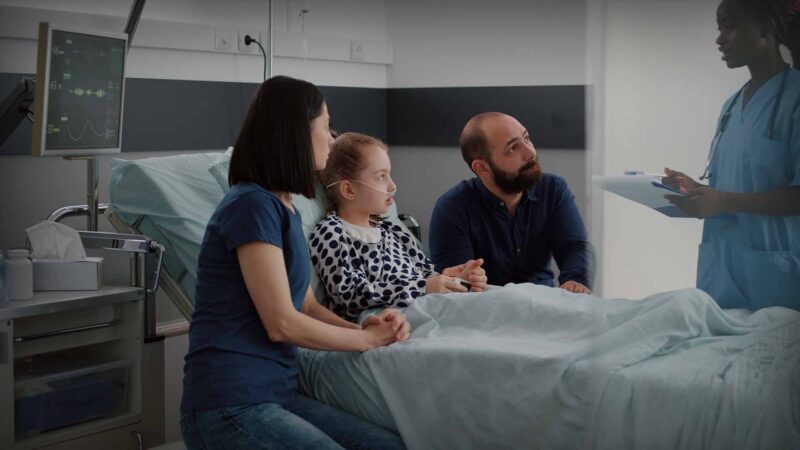Unlike Emergency Departments that operate within public hospitals and some private hospitals, a Walk-in Specialist Emergency Clinic is located in the community and designed to provide comprehensive, coordinated acute care – from initial consultation and diagnostic services, to treatment and specialist referral if required – without the patient having to visit a hospital.
The first WiSE Clinic opened in Macquarie Park (North Ryde), New South Wales in early 2017, delivering immediate medical care when accidents or emergencies require more than a GP visit and are considered non-life threatening or unlikely to require admission to hospital.
Australian health journal spoke to the visionary, founder and CEO behind this WiSE Specialist Emergency clinic, Dr Pankaj Arora.
Dr Arora talks about the origins of his journey in emergency departments working in four continents as an Emergency Room physician for the past 28 years. His passion is to develop health care systems to help acute care in the community.
Stating 70% of people presenting at Emergency Departments in Australian Hospitals, not getting admitted, 7 years ago Dr Arora modelled these patients presenting to ER but breaking away from the hospital setting. This break away setting would deliver treatment by a team of doctors, allied health specialists, radiology, fracture clinic, chest pain clinic, TIA clinic, early pregnancy clinic and pathology services all co-located in the single facility.
Since putting the model in place and opening in 2017, the Macquarie Park WiSE Emergency Specialist Clinic has treated over 70,000 patients. Dr Arora sees it as a very efficient and cost effective model, where the patient is seen by a specialist in a multidisciplinary team within half an hour and receives results within an hour. He emphasises the clinic has not replaced General Practice nor the Emergency Department in hospital.
From the success of the Macquarie Park, NSW clinic, last year Dr Arora set his plans in motion to open a 2nd WiSE emergency specialist care clinic, this time in Queensland. This happened only after 3 years of planning and modelling prior to the opening of the new centre in September 2022. However since opening in Robina, Gold Coast, the new WiSE clinic has been treating on average 20 patients per day – a faster rate than the first 6 months of the Macquarie Park, NSW clinic.
In closing Dr Arora talks about the differences between the WiSE model and urgent care clinics. Scaled down versions of emergency care departments in urgent care centres fail to address the treatment required for patients between General Practice and at hospital emergency departments.
His plans now include opening 10 clinics in the next 5 years, with an expectation that 20-50 clinics would be needed across Australia in the medium to long term.
You Might also like
-
Shaping Health, Advancing Nursing through training, upskilling & scholarships
The Chief Executive Officer of Australian College of Nursing, Adjunct Professor Kylie Ward FACN spoke in depth with Australian Health Journal about:
The key recommendations in ACN’s pre-budget submission to Federal Government
The impact of legislation requiring a Registered Nurse (RN) at every residential aged care facility from 1st July 2023
Why scholarships in nursing leadership are important
Why ACN has recommended the Government fund 200 Pacific nurses in 15 nations for the online ACN postgraduate certification
The need for a multi-pronged approach that includes skilled migration in rebuilding the nursing workforceIn the lead up to the Australian Federal Budget in May 2023, Australian Health Journal reached out to peak health industry bodies to hear about their priorities, either noted in pre-budget submissions lodged with Federal Government in January 2023 or in recent forums such as the Strengthening Medicare Taskforce.
-
Enriching experiences in nursing mentorship
Mentoring in nursing is crucial for the development of nurses and the advancement of the nursing profession. It provides a supportive environment for personal and professional growth, knowledge transfer, and leadership development.
Australian Health Journal met with two nurses both working in Queensland, one the mentor, the other, the mentee. Both get to appreciate the experiences mentorship gives them.
-
Addressing Wound Management
The cost of chronic wounds in Australia is estimated to be $3 Billion per year, impacting 420,000 Australians. Not only is this a national economic concern, but more importantly, is the suffering the person may be going through.
Australian Health Journal met with Hayley Ryan, Board Director and Chair at Wounds Australia and Director at WoundRescue to hear her work in chronic wound management, palliative wounds and pressure injury prevention to comfort those living with a wound.



